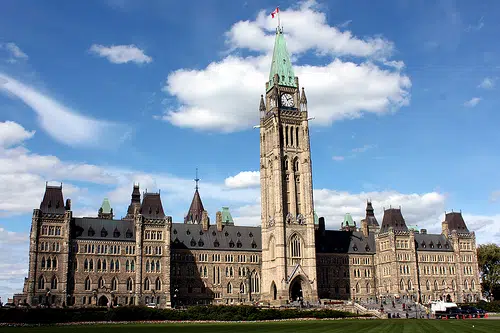Equalization payments for Maritime provinces could soon be in jeopardy, according to a new report from a public policy think-tank.
Ben Eisen, a senior fellow with the Fraser Institute, said the gap between Canada’s so-called “have” and “have-not” provinces is shrinking, and fast.
Eisen and his team studied the fiscal capacity gap — a province’s ability to raise own-source revenues at tax rates set to the national average, plus any additional revenues from natural resource royalties — between richer and poorer provinces.
“At the start of the period we look at in 2007, the gap between the richest and poorest province in terms of their ability to raise money was about $11,000 per person,” said Eisen. “This year, we estimate that’s going to be down to $4,000 per person.”
The report estimates that British Columbia will overtake Alberta as the province with the highest fiscal capacity in the 2020-21 fiscal year, while New Brunswick will replace Prince Edward Island as the province with the lowest.
The narrowing gap has been driven primarily by declining economic strength in high-income provinces, said Eisen, rather than by growth in low-income provinces.
In 2020, the federal government gave out $20.6-billion in equalization payments to five provinces: New Brunswick, Nova Scotia, Prince Edward Island, Quebec and Manitoba. About $4.8 billion went to the three Maritime provinces.
But with the price of oil declining and natural resource drying up, provinces like Alberta and Newfoundland and Labrador could soon become eligible for equalization dollars, said Eisen.
“If that happens, payments to the Maritime provinces through equalization — which account for 20 per cent of all the revenue that funds provincial programming in the Maritime provinces — those payments could fall significantly,” he said.
That means New Brunswick, Nova Scotia and Prince Edward Island would have to find new ways to make up the difference in revenue.
Eisen said that would involve either reducing spending or slowing down its rate of growth — or raising taxes.
But according to Eisen, raising taxes is likely not something governments in the Maritimes can afford to do.
“I would suggest that the Maritime provinces are already at the top of the country in terms of tax effort,” he said. “They have very high personal income taxes at most income levels, high consumption taxes and even high corporate income taxes, so the ability to raise more revenue through tax increase might be very limited.”
Eisen said provincial governments in the Maritimes should begin planning now to reduce some of the inherent risks if equalization payments are reduced.








